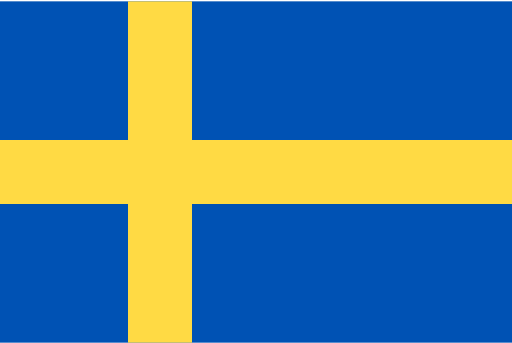English and the Swedish Language
I’m a nerd in the process of learning the Swedish language, and one of the most helpful things I’ve found on this journey is learning how words evolved over time. I’m simply amazed at the amount of common words shared between English and Swedish. The largest source of these is Old Norse, and the interactions between Nordic settlers/raiders and the tribes in Britain during the formation of England, but there are many words that can also be traced back through Latin, French, back to the reconstructed Proto-Germanic language. Once again, I’m just a nerd and not a linguist, so let me know if there are points I missed, got wrong, or if there’s anything you’d like to add.
Wreaths and Wrath
The word I want to talk about today is wreath. We were talking about making those Midsommar flower wreaths and my girlfriend asked me how to spell it in English, which made me curious about the origin of the word.
The first interesting tidbit when I started researching the history of the word wreath is that it is apparently an offshoot of writhe. Immediately we see a connection to twisting and wrapping motions. A wreath is something that is twisted and wrapped around into a circular shape, and writhe is the action of twisting and contorting the body. Both words can be traced back through Old English and Old Norse to a common Proto-Germanic word that was something like *wrīþaną (To weave, to twist”.
From this ancestor you can follow some of the common sound shifts back down the line into modern Swedish. If you’re an English speaker studying Swedish you’ll probably have noticed that English “W” sounds tend to change to “V” sounds in Swedish. The same thing happens with the “TH” sound being pronounced as a “D”. It’s easy then to see how writhe shares a root with the Swedish verb vrida (to twist, to turn). You can also make another English connection with the word wring by saying vrida ur (literally “twist out”).
More Twists and Turns
Another interesting twist (hah!) to the story, is that there is a related Proto-Germanic word (something like *wraiþaz) that meant extremely angry or furious, that passed down into English as wrath. I started looking for the Swedish version of this and sure enough, following the same sound changes came up with vred. Vred can either be the past tense of vrida, as a noun it can mean the handle of something that can be turned, or it can have an adjective sense of wrath or being wrathful. It’s interesting to note that if someone is extremely angry about something, we can use the word wrathful very literally as them being “bent out of shape”.
To go back from this sidetrack to the original word wreath, the Swedish name for the twisted together ring of flowers is actually krans. German, Dutch, and most of the other Germanic family languages have kept variations of this instead of the word wreath for some reason that I may try to explore later on.
So there you have my journey down the rabbit hole of related English and Swedish words! I have quite a list of these saved up and plan to start organizing them into articles and diagrams showing how the languages split, evolved, shared, borrowed, and stole from each other. Let me know if there are any interesting facts you’ve come across, or if there is anything you’d like to see explored more in depth. Thanks for reading!
